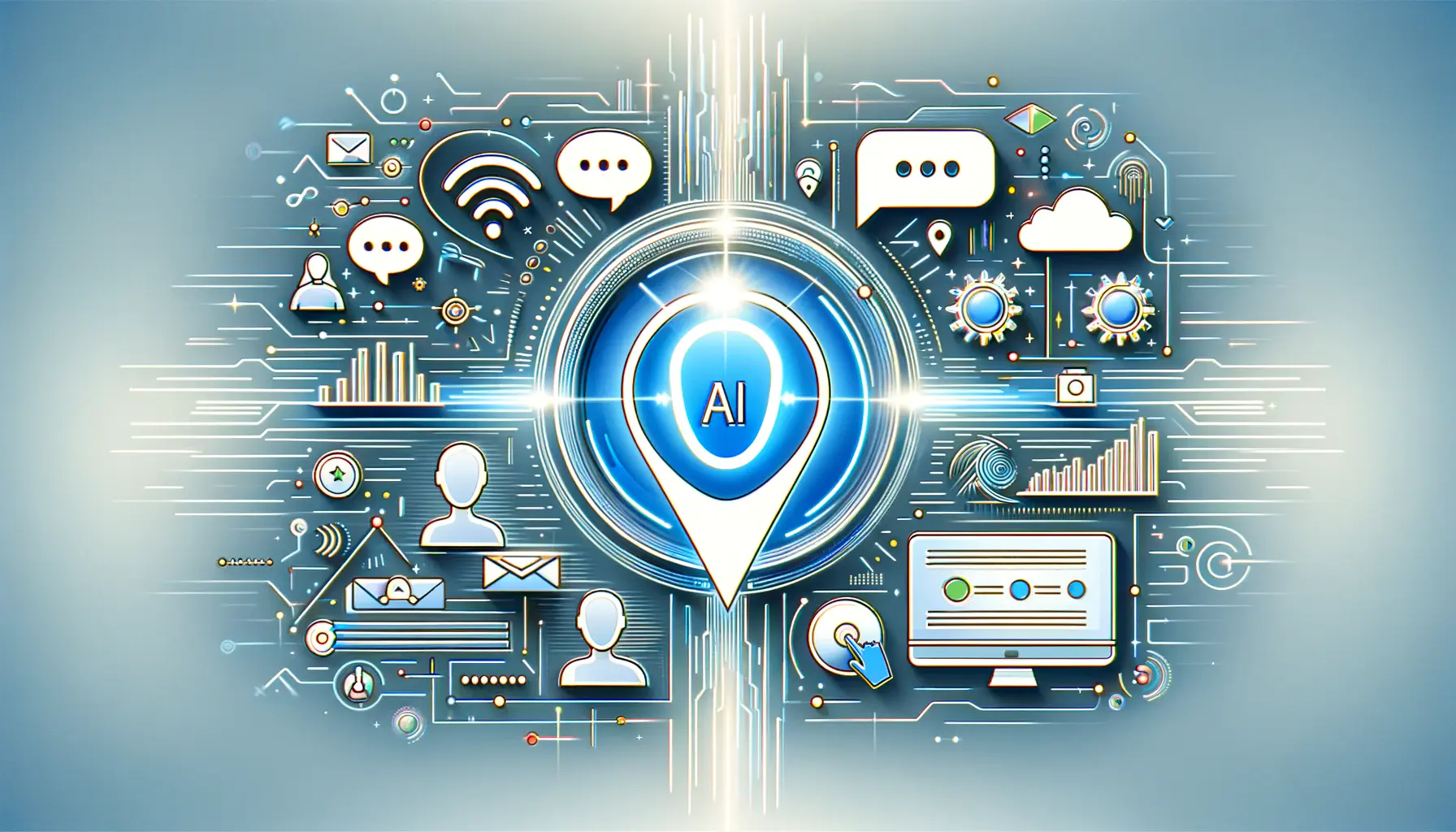Google’s Bard represents a significant leap forward in the realm of online research and artificial intelligence.
As the digital age continues to evolve, the demand for more sophisticated, intuitive, and responsive AI tools has never been higher.
Google’s Bard, with its advanced capabilities and innovative features, aims to meet this demand by revolutionizing how we interact with information on the internet.
This AI-driven platform is not just an enhancement of existing technologies; it is a bold reimagining of how users can engage with digital content, analyze data, and find answers to complex queries in real-time.
The introduction of Bard by Google marks a pivotal moment in the journey towards a more interconnected and intelligent web.
By leveraging the power of generative AI, Bard is designed to understand, interpret, and respond to user inputs in a way that feels natural and human-like.
This breakthrough technology goes beyond mere keyword searches, offering a dynamic and interactive research experience that can adapt to the user’s needs, providing tailored information and insights that were previously out of reach.
- Understanding Google Bard’s Core Technology
- The Impact of Bard on Academic Research
- Google Bard and the Future of Professional Industries
- Optimizing Content Creation with Google Bard
- Personalizing User Experiences with Google Bard
- Challenges and Ethical Considerations of Google Bard
- Exploring Bard’s Global Impact and Accessibility
- Embracing the Future with Google Bard
- Google Bard: Revolutionizing Online Research – FAQs
Understanding Google Bard’s Core Technology
At the heart of Google Bard lies a sophisticated AI framework that sets it apart from traditional search engines and digital assistants.
This technology is built on the latest advancements in machine learning and natural language processing (NLP), enabling Bard to comprehend and generate human-like text based on a vast corpus of information.
The system is designed to learn from interactions, improving its accuracy and relevance over time, thereby offering a more personalized and efficient research tool.
One of the key features of Bard is its ability to process and synthesize information from diverse sources, including scholarly articles, websites, and multimedia content.
This capability ensures that users receive comprehensive and up-to-date answers to their queries.
Moreover, Bard’s integration with Google’s vast data ecosystem allows it to draw on a wide range of disciplines and topics, making it an invaluable resource for researchers, students, and professionals alike.
Revolutionizing User Interaction
Bard’s intuitive interface and conversational approach represent a significant departure from traditional search methodologies.
Users can engage in a dialogue with Bard, asking questions, refining their queries, and exploring topics in depth.
This interactive model encourages exploration and discovery, making the research process more engaging and less time-consuming.
The AI’s ability to understand context and nuance adds another layer of sophistication, allowing for more accurate and relevant responses.
The platform’s adaptability is another standout feature, as it can cater to various user intents, from academic research to casual browsing.
Whether you’re looking for a quick summary of a complex concept or an exhaustive analysis of a particular subject, Bard is equipped to meet these diverse needs.
This flexibility enhances the overall user experience, making information more accessible and easier to understand.
Enhancing Research Efficiency
Bard’s impact on research efficiency cannot be overstated.
By automating the information-gathering process and providing instant access to a wealth of data, Bard significantly reduces the time and effort required for research.
This efficiency is particularly beneficial in academic and professional settings, where time is often of the essence.
Additionally, Bard’s ability to generate insights and summaries from extensive documents or datasets presents a major advantage for users looking to quickly grasp complex information.
Moreover, Bard’s integration with other Google services, such as Scholar and Drive, streamlines the research workflow, enabling users to seamlessly access, store, and share information.
This interconnectedness not only enhances productivity but also fosters collaboration, as users can easily share findings and work together on research projects.
Google’s Bard is revolutionizing the approach to online research by leveraging advanced AI technologies to provide a more intuitive, efficient, and interactive research experience.
The Impact of Bard on Academic Research
The advent of Google Bard is poised to transform the landscape of academic research.
By offering a tool that can understand and process complex queries, Bard opens up new possibilities for scholars, researchers, and students.
This section delves into how Bard is set to enhance academic research, making it more efficient, comprehensive, and collaborative.
Streamlining the Research Process
The traditional academic research process can be time-consuming and cumbersome, often involving the navigation of multiple databases and the manual synthesis of information.
Bard simplifies this process significantly.
With its advanced AI capabilities, Bard can quickly sift through vast amounts of academic literature and data, presenting users with relevant information in a fraction of the time it would take manually.
This efficiency not only accelerates the research process but also allows researchers to delve deeper into their subjects without being bogged down by the logistical challenges of information retrieval.
Facilitating Comprehensive Literature Reviews
Conducting a thorough literature review is a critical step in any research project, yet it can be one of the most daunting tasks for researchers.
Bard’s ability to access and analyze a wide range of sources, from peer-reviewed journals to conference proceedings, makes it an invaluable tool for literature reviews.
Researchers can use Bard to:
- Identify key studies and articles relevant to their research topic.
- Summarize the main findings and methodologies of these studies.
- Track down citations and references for deeper exploration.
This comprehensive approach ensures that researchers have a solid foundation for their projects, grounded in the latest findings and insights in their field.
Enhancing Collaboration and Knowledge Sharing
Academic research is increasingly collaborative, often involving teams spread across institutions and countries.
Bard facilitates this collaboration by making it easier for researchers to share information and insights.
Through its integration with Google Drive and other collaborative tools, Bard enables research teams to:
- Share summaries and analyses of relevant literature.
- Collaborate on document creation and editing in real-time.
- Organize and categorize research findings for easy access by all team members.
This collaborative functionality not only streamlines the research process but also fosters a more dynamic exchange of ideas, enhancing the quality and impact of academic work.
Supporting Diverse Research Methodologies
Bard’s versatility extends to its support for a variety of research methodologies.
Whether conducting qualitative research, quantitative analyses, or mixed-methods studies, researchers can leverage Bard to:
- Generate statistical data and visualizations for quantitative research.
- Analyze text and identify themes for qualitative studies.
- Combine and compare different types of data for mixed-methods research.
This adaptability makes Bard a powerful tool for researchers across disciplines, enabling them to approach their work with greater flexibility and creativity.
The integration of Bard into academic research practices promises to enhance the efficiency, depth, and collaborative nature of scholarly work, ushering in a new era of academic inquiry.
Google Bard and the Future of Professional Industries
The implications of Google Bard extend far beyond academic circles, promising to revolutionize professional industries by automating research, enhancing decision-making, and fostering innovation.
This section explores the transformative potential of Bard across various sectors, highlighting its role in driving efficiency and strategic insights.
Revolutionizing Market Research
In the fast-paced world of business, staying ahead of market trends and consumer behavior is crucial.
Bard’s advanced analytics and data processing capabilities offer companies a competitive edge.
By quickly aggregating and analyzing market data, Bard helps businesses:
- Identify emerging trends and consumer preferences.
- Conduct competitive analysis to understand market positioning.
- Generate insights for product development and marketing strategies.
This real-time market intelligence allows companies to make informed decisions, tailor their offerings, and strategically position themselves in the market.
Enhancing Legal Research and Analysis
The legal profession relies heavily on precise and comprehensive research.
Bard’s ability to sift through vast legal databases and statutes can significantly streamline the legal research process.
Lawyers and legal professionals can use Bard to:
- Quickly find relevant case law and precedents.
- Analyze legal documents for critical insights and arguments.
- Stay updated on new laws and regulatory changes.
This efficiency not only saves time but also enhances the quality of legal advice and representation, leading to better outcomes for clients.
Transforming Healthcare Research
Healthcare research is critical for advancing medical knowledge and improving patient care.
Bard’s capacity to analyze medical literature, patient data, and clinical trials can transform the field by:
- Identifying new treatment methodologies and medical breakthroughs.
- Supporting epidemiological studies with comprehensive data analysis.
- Facilitating personalized medicine through the analysis of patient data.
These capabilities can accelerate medical research, leading to faster development of treatments and improved healthcare outcomes.
Driving Innovation in Engineering and Technology
The engineering and technology sectors are at the forefront of innovation, where the rapid evaluation of ideas and concepts is key to development.
Bard’s ability to process technical documents, patents, and research papers enables engineers and technologists to:
- Conduct feasibility studies and technical analyses.
- Stay abreast of the latest technological advancements and innovations.
- Enhance product design and development through insights derived from existing technologies.
This access to a wealth of technical knowledge and insights fosters innovation, helping companies develop cutting-edge products and solutions.
Google Bard is set to be a game-changer across professional industries, offering tools for enhanced research, decision-making, and innovation, thereby shaping the future of work and industry practices.
Optimizing Content Creation with Google Bard
The digital age has ushered in an era where content is king, making the ability to produce high-quality, engaging, and relevant content more critical than ever.
Google Bard emerges as a pivotal tool in this landscape, offering content creators, marketers, and writers unparalleled support.
This section explores how Bard is revolutionizing content creation, from ideation to publication.
Enhancing Ideation and Brainstorming
One of the most challenging aspects of content creation is the ideation phase, where creators strive to come up with fresh and compelling ideas.
Bard’s AI-driven insights can significantly enhance this process by:
- Providing trend analysis to identify topics that are gaining traction.
- Offering suggestions for content angles and approaches based on current events and audience interests.
- Generating titles and headlines that are optimized for engagement and SEO.
These capabilities enable creators to develop content that is not only relevant and timely but also aligned with audience preferences and search trends.
Streamlining Research and Fact-Checking
Thorough research and accuracy are the cornerstones of credible content.
Bard simplifies these tasks by:
- Quickly aggregating information from credible sources to support content claims.
- Fact-checking data and statistics to ensure content accuracy.
- Providing summaries of complex topics to enhance content depth and understanding.
This support helps creators produce content that is not only engaging but also informative and trustworthy, thereby enhancing audience trust and loyalty.
Improving Writing Efficiency and Quality
Bard’s natural language processing capabilities can assist writers in refining their content, making it more readable and impactful.
This assistance includes:
- Suggesting language improvements and variations to enhance readability.
- Offering synonyms and alternative expressions to avoid repetition and enrich the text.
- Generating summaries and bullet points to structure content more effectively.
These features save time and effort in the editing process, allowing creators to focus on the creative aspects of content production.
SEO Optimization and Audience Engagement
In the digital realm, visibility is as important as content quality.
Bard aids in optimizing content for search engines by:
- Identifying relevant keywords and phrases to improve SEO rankings.
- Analyzing competitor content to uncover gaps and opportunities for differentiation.
- Providing insights on audience engagement strategies to increase content reach and interaction.
By leveraging Bard’s capabilities, creators can ensure their content not only resonates with their audience but also performs well in search engine rankings, driving traffic and engagement.
Google Bard is transforming content creation by offering tools that enhance creativity, ensure accuracy, improve efficiency, and optimize for search engines, thereby empowering creators to produce content that stands out in the digital landscape.
Personalizing User Experiences with Google Bard
In today’s digital ecosystem, personalization is the key to capturing and retaining user attention.
Google Bard’s sophisticated AI capabilities offer unprecedented opportunities for creating personalized user experiences across various platforms and applications.
This section highlights how Bard is enabling businesses and developers to tailor digital experiences to individual user preferences and behaviors.
Customizing Content Recommendations
Content recommendation engines have become a staple in enhancing user engagement by suggesting relevant articles, videos, and products.
Bard’s ability to analyze user behavior and preferences takes this to a new level by:
- Identifying patterns in user interactions to predict future interests.
- Generating personalized content recommendations that resonate with individual users.
- Adjusting recommendations in real-time based on user feedback and behavior changes.
This dynamic personalization ensures that users are consistently presented with content that is engaging and relevant, significantly enhancing the user experience.
Improving Customer Service Interactions
Customer service can make or break the user experience.
Bard’s integration into customer service platforms can revolutionize how businesses interact with their customers by:
- Providing AI-driven support that can understand and respond to complex customer inquiries.
- Personalizing responses based on the customer’s history and preferences.
- Offering predictive solutions and proactive support to address customer needs before they escalate.
These capabilities not only improve the efficiency of customer service but also ensure that interactions are more meaningful and tailored to individual needs.
Enhancing E-commerce Shopping Experiences
E-commerce platforms can leverage Bard to offer personalized shopping experiences that mimic the attentiveness of in-store shopping.
By analyzing browsing history, purchase patterns, and user preferences, Bard can:
- Recommend products that match the user’s style and preferences.
- Offer personalized discounts and deals to encourage purchases.
- Provide tailored product information and comparisons to aid in decision-making.
This level of personalization not only boosts sales but also builds brand loyalty by making shopping more convenient and tailored to each user.
Optimizing User Interfaces and Navigation
The usability of digital platforms is crucial for user retention.
Bard can play a significant role in optimizing user interfaces and navigation by:
- Analyzing user interaction data to identify pain points and areas for improvement.
- Suggesting layout changes and features that cater to user preferences and behaviors.
- Enabling dynamic interface adjustments based on user feedback and engagement metrics.
These insights allow developers to create more intuitive and user-friendly interfaces, significantly enhancing the overall digital experience.
By enabling the creation of highly personalized user experiences, Google Bard is helping businesses and developers to engage users more effectively, fostering loyalty and driving user satisfaction.
Challenges and Ethical Considerations of Google Bard
While Google Bard represents a significant advancement in AI and machine learning, its deployment and widespread use come with a set of challenges and ethical considerations.
These concerns are crucial for developers, users, and society at large to address, ensuring that Bard’s benefits are maximized while minimizing potential risks and unintended consequences.
Data Privacy and Security
The operation of Bard relies heavily on accessing and processing vast amounts of data, raising significant privacy and security concerns.
Ensuring the confidentiality and integrity of user data is paramount, as is:
- Implementing robust data protection measures to safeguard against unauthorized access and breaches.
- Maintaining transparency with users about how their data is used and providing options for data management and deletion.
- Adhering to global data protection regulations and standards to protect user privacy.
Addressing these concerns is essential for maintaining user trust and ensuring the ethical use of Bard.
Accuracy and Misinformation
As an AI-driven platform, Bard’s ability to generate and disseminate information rapidly can lead to challenges around accuracy and the potential spread of misinformation.
To mitigate these risks, it is necessary to:
- Continuously monitor and update Bard’s knowledge base to ensure information accuracy.
- Implement mechanisms for fact-checking and verifying the information generated by Bard.
- Provide users with tools to report inaccuracies and misinformation for prompt correction.
These measures can help maintain the integrity of the information provided by Bard and prevent the spread of false or misleading content.
Algorithmic Bias and Fairness
AI systems, including Bard, are susceptible to algorithmic biases that can arise from biased training data or flawed algorithms.
Addressing these biases is crucial for ensuring fairness and avoiding discrimination, by:
- Employing diverse and representative datasets for training Bard to minimize biases.
- Conducting regular audits of Bard’s algorithms and outputs to identify and correct biases.
- Engaging with diverse user groups to understand and address potential fairness issues.
These efforts are essential for fostering an inclusive and equitable digital environment.
Impact on Employment and Skills
The automation and efficiency offered by Bard may lead to concerns about the displacement of jobs and the devaluation of certain skills.
It is important to:
- Identify and address potential job displacement issues by providing retraining and upskilling opportunities.
- Emphasize the complementary role of Bard in enhancing human capabilities rather than replacing them.
- Encourage the development of new skills that leverage Bard’s capabilities for creative and strategic tasks.
By addressing these challenges and ethical considerations, the development and use of Google Bard can be steered in a direction that maximizes societal benefits while minimizing potential harms.
Ignoring the ethical considerations and challenges associated with Google Bard could lead to significant societal and individual risks, underscoring the importance of responsible AI development and deployment.
Exploring Bard’s Global Impact and Accessibility
The launch of Google Bard is not just a technological milestone; it’s a global phenomenon with the potential to reshape access to information, education, and technology across the world.
This section delves into the broader implications of Bard’s deployment, focusing on its impact on global digital equity and the challenges and opportunities it presents in making advanced AI accessible to diverse populations.
Democratizing Access to Information
One of Bard’s most significant contributions is its potential to democratize access to information.
By breaking down language barriers and simplifying complex concepts, Bard can:
- Make high-quality information available to non-English speakers and those with limited access to educational resources.
- Support lifelong learning and self-education, empowering individuals to improve their knowledge and skills.
- Enhance global understanding and cooperation through easier access to diverse perspectives and cultures.
This democratization is crucial for closing the global information gap and fostering a more informed and educated world population.
Addressing Digital Divide Challenges
While Bard has the potential to significantly impact global information access, its effectiveness is contingent on addressing the digital divide—the gap between those who have access to modern information and communication technology and those who do not.
To maximize Bard’s global impact, efforts must focus on:
- Improving internet access and affordability in underserved regions to ensure Bard can reach those who could benefit most.
- Developing mobile-friendly versions of Bard that can operate on low-bandwidth connections, making it accessible to users in remote areas.
- Creating educational programs to improve digital literacy, enabling more people to effectively use Bard and other online resources.
Addressing these challenges is essential for ensuring that Bard contributes to reducing the digital divide rather than exacerbating it.
Encouraging Local Content Creation and Preservation
Bard’s AI capabilities can also support the creation and preservation of local content, which is vital for cultural preservation and the promotion of local languages and knowledge.
This can be achieved by:
- Using Bard to translate and disseminate local knowledge and cultural heritage, making it accessible to a wider audience.
- Encouraging the use of Bard in educational institutions to create content in local languages, supporting language preservation and revitalization efforts.
- Facilitating the documentation of local histories and traditions, contributing to the global cultural mosaic.
These initiatives can help ensure that the benefits of AI and digital transformation are shared globally, respecting and promoting cultural diversity.
Shaping Future AI Developments
The global reception and adaptation of Bard will also play a crucial role in shaping the future of AI development.
By analyzing usage patterns, feedback, and the diverse needs of global users, developers can:
- Identify areas for improvement and innovation in AI technologies, ensuring they meet the needs of a diverse user base.
- Understand the ethical, cultural, and societal implications of AI, guiding responsible AI development that benefits humanity as a whole.
- Encourage the development of AI policies and frameworks that promote equitable access, privacy, and ethical use of AI technologies.
Google Bard’s introduction into the global market is a step towards a more interconnected, informed, and equitable world.
By addressing accessibility challenges and leveraging Bard’s capabilities for global good, we can ensure that the benefits of AI are shared by all.
The global impact of Google Bard hinges on our ability to address accessibility challenges, promote digital equity, and leverage AI for the collective benefit of societies worldwide.
Embracing the Future with Google Bard
The advent of Google Bard marks a significant milestone in the evolution of artificial intelligence and its integration into our daily lives.
As we have explored, Bard’s capabilities extend far beyond simplifying online searches or acting as a digital assistant.
Its profound impact on academic research, professional industries, content creation, personalized user experiences, and global digital equity highlights the transformative potential of AI when leveraged responsibly and creatively.
Google Bard is not just a tool but a harbinger of a future where AI and human ingenuity converge to solve complex problems, enhance productivity, and foster a more informed and connected world.
Revolutionizing Research and Professional Practices
Google Bard’s role in revolutionizing research methodologies and professional practices cannot be overstated.
By offering an intuitive, efficient, and interactive platform, Bard has the potential to significantly reduce the time and effort associated with traditional research processes.
This efficiency is invaluable across various sectors, enabling professionals to make informed decisions, innovate, and stay ahead in their respective fields.
The implications for academic research are particularly profound, with Bard serving as a catalyst for more comprehensive, collaborative, and accessible scholarly work.
Transforming Content Creation and User Experiences
In the realm of digital content creation, Bard emerges as a powerful ally, assisting creators in navigating the challenges of ideation, research, and SEO optimization.
Its ability to generate personalized content recommendations and enhance user engagement strategies underscores the shift towards more dynamic and interactive digital experiences.
Furthermore, Bard’s impact on personalizing user experiences across platforms signifies a move towards more user-centric digital environments, where personalization and efficiency enhance the quality of digital interactions.
Addressing Challenges and Ethical Considerations
Despite its vast potential, the deployment of Google Bard is accompanied by challenges and ethical considerations that necessitate careful navigation.
Issues surrounding data privacy, misinformation, algorithmic bias, and the digital divide present hurdles that must be addressed to ensure Bard’s positive impact.
The commitment to addressing these challenges head-on is crucial for fostering an AI-powered future that is equitable, ethical, and beneficial for all.
Charting a Path Forward
As we stand on the brink of this new era, the journey of Google Bard from a revolutionary concept to a global phenomenon offers valuable insights into the future of AI.
The path forward requires a collaborative effort among developers, users, policymakers, and the global community to harness Bard’s capabilities while navigating its challenges responsibly.
By doing so, we can unlock the full potential of Google Bard and similar AI innovations, ensuring they serve as tools for positive change, innovation, and global connectivity.
In conclusion, Google Bard represents a significant leap forward in our quest to revolutionize the approach to online research and digital interaction.
Its development reflects a broader trend towards integrating AI into various facets of human activity, aiming to enhance efficiency, creativity, and connectivity.
As we continue to explore and expand the boundaries of what AI can achieve, Bard stands as a testament to the potential of technology to reshape our world for the better, provided we navigate its challenges with foresight and responsibility.
Google Bard: Revolutionizing Online Research – FAQs
Explore the most frequently asked questions about Google Bard and its impact on revolutionizing the approach to online research.
Google Bard can retrieve information, summarize content, brainstorm ideas, and generate creative content across various Google apps.
Bard uses advanced AI to analyze web information, generating responses and content based on user queries and interactions.
Initially available in the U.S. and U.K., Bard’s availability is expanding to include more countries over time.
Bard streamlines research by quickly synthesizing information from a wide range of academic sources, making comprehensive literature reviews more efficient.
Yes, Bard can help brainstorm ideas, suggest content improvements, and optimize for SEO, enhancing both creativity and engagement.
While Bard is a powerful tool, it may have limitations in understanding highly specialized or niche queries without sufficient context.
Bard adheres to Google’s strict privacy policies, ensuring user data is protected and used responsibly during interactions.
Yes, Bard can tailor recommendations and responses based on user behavior and preferences, enhancing personalized digital experiences.











